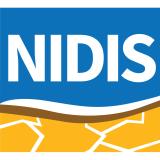Snoqualmie DROUT: Snoqualmie Drought Resilience for OUr Tribe

The Snoqualmie Indian Tribe (SIT) has a reservation located approximately 25 miles east of Seattle, Washington on the west side of the Cascade Mountains within the Snoqualmie River basin in the headwaters of the Snohomish River Basin. The SIT depends on groundwater wells for water supply within the Snoqualmie Reservation, and from time immemorial, the SIT has also advocated for the preservation and enhancement of ecological functions of the Snoqualmie River watershed. This watershed is home to Endangered Species Act–protected salmon and steelhead, resident cold-water fish populations, and supports fisheries and traditional natural and cultural resources for Coast Salish people including the SIT.
The watershed has been degraded over the years due to land clearing and development, stream and river channelization, dredging and drainage projects, and reduction in summer flows due to agricultural, residential, and commercial use of the basin’s water. Climate forecasts indicate increasingly frequent and severe droughts may be expected in the Snoqualmie watershed, which, coupled with increasing demand for domestic, agricultural, and industrial water supply, may impact availability of water for tribal needs at the SIT Reservation and further degrade the productivity of cold-water fish habitat throughout the Snoqualmie basin.
The goal of this work is to identify current and future drought impacts on the SIT water supply and ecological functioning of the Snoqualmie River, develop a drought indicator strategy, and identify mitigation strategies to minimize drought impacts. This project will contribute directly to the drought resilience of the SIT and the resources of the SIT’s ancestral lands, as well as other members of the Snoqualmie Valley community, by beginning to address an unmet need for drought coordination in the Snoqualmie watershed.
This research was funded by NIDIS through the FY 2024 Coping with Drought: Tribal Drought Resilience grant competition. For more information, please contact Britt Parker (britt.parker@noaa.gov).
Research Snapshot
Matthew Baerwalde, Snoqualmie Indian Tribe, Environmental and Natural Resources Department
Scott Kindred, Kindred Hydro, Inc.
What to expect from this research
- Characterize water needs for the SIT and other water users in the Snoqualmie watershed.
- Use Indigenous Knowledge (IK) and other science to identify optimal drought indicators and evaluate the linkage between climate, groundwater, surface water, and fisheries.
- Conduct a drought vulnerability assessment.
- Use IK and other science to develop and evaluate drought mitigation strategies for SIT and other water users in the Snoqualmie watershed.
- Develop a Drought Dashboard and DROUT project communications plan.





